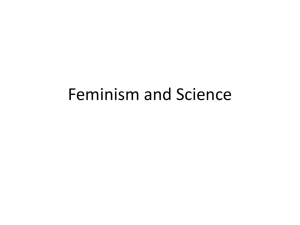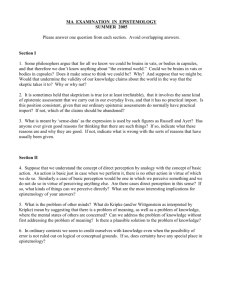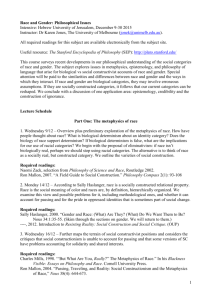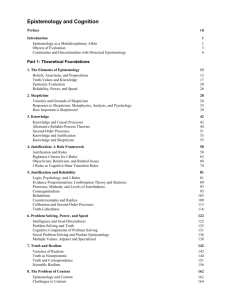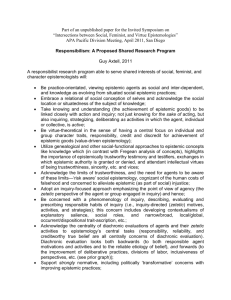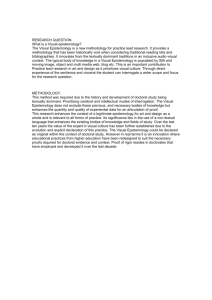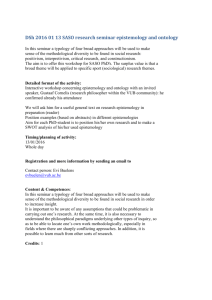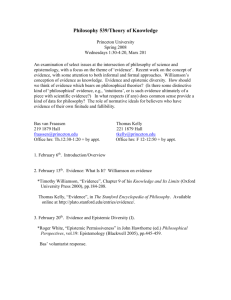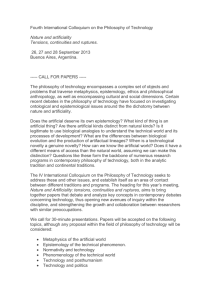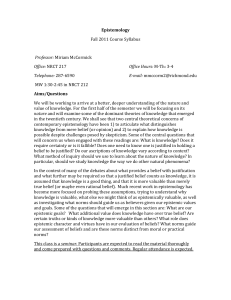Alcoff PHILO 394.72 Spring 2015 Course Description
advertisement
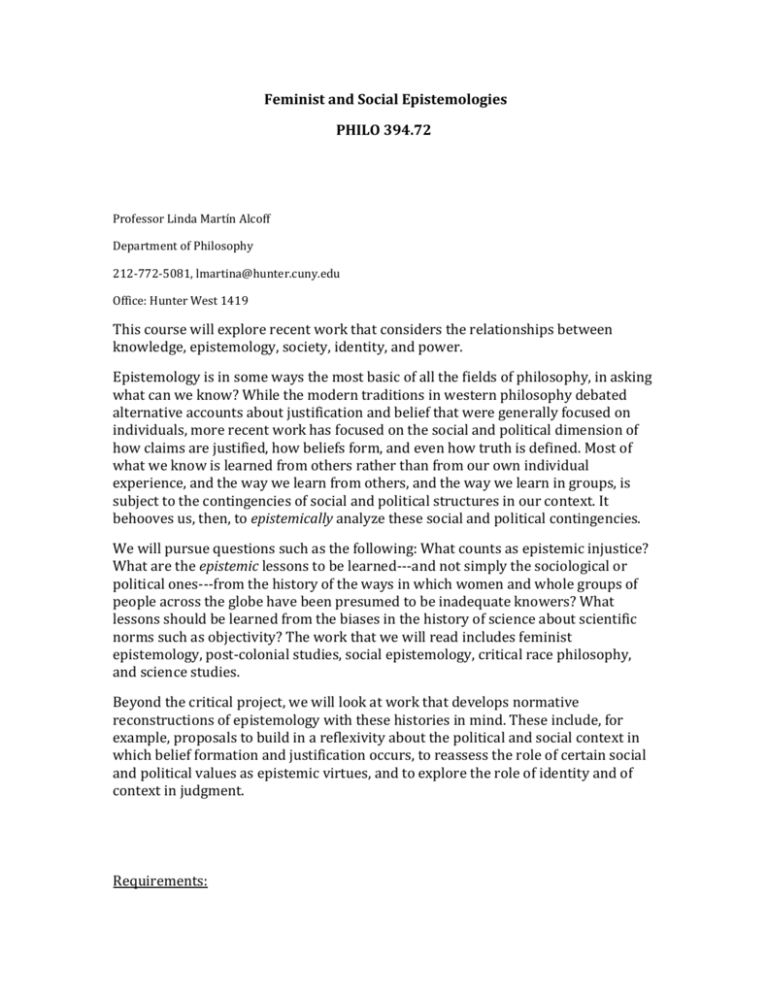
Feminist and Social Epistemologies PHILO 394.72 Professor Linda Martín Alcoff Department of Philosophy 212-772-5081, lmartina@hunter.cuny.edu Office: Hunter West 1419 This course will explore recent work that considers the relationships between knowledge, epistemology, society, identity, and power. Epistemology is in some ways the most basic of all the fields of philosophy, in asking what can we know? While the modern traditions in western philosophy debated alternative accounts about justification and belief that were generally focused on individuals, more recent work has focused on the social and political dimension of how claims are justified, how beliefs form, and even how truth is defined. Most of what we know is learned from others rather than from our own individual experience, and the way we learn from others, and the way we learn in groups, is subject to the contingencies of social and political structures in our context. It behooves us, then, to epistemically analyze these social and political contingencies. We will pursue questions such as the following: What counts as epistemic injustice? What are the epistemic lessons to be learned---and not simply the sociological or political ones---from the history of the ways in which women and whole groups of people across the globe have been presumed to be inadequate knowers? What lessons should be learned from the biases in the history of science about scientific norms such as objectivity? The work that we will read includes feminist epistemology, post-colonial studies, social epistemology, critical race philosophy, and science studies. Beyond the critical project, we will look at work that develops normative reconstructions of epistemology with these histories in mind. These include, for example, proposals to build in a reflexivity about the political and social context in which belief formation and justification occurs, to reassess the role of certain social and political values as epistemic virtues, and to explore the role of identity and of context in judgment. Requirements: There will be five short papers, one due about every two weeks, an in-class midterm, and a final paper. Short papers will be 2-3 page summaries and discussions of the readings. Books: 1. 2. 1. 2. 3. 4. Miranda Fricker Epistemic Injustice Jose Medina Epistemologies of Resistance Sandra Harding, editor, The Standpoint Theory Reader Elizabeth Potter, Feminism and Philosophy of Science Elisabeth Lloyd The Case of the Female Orgasm Alexis Shotwell Knowing Otherwise: Race, Gender and Implicit Understanding
